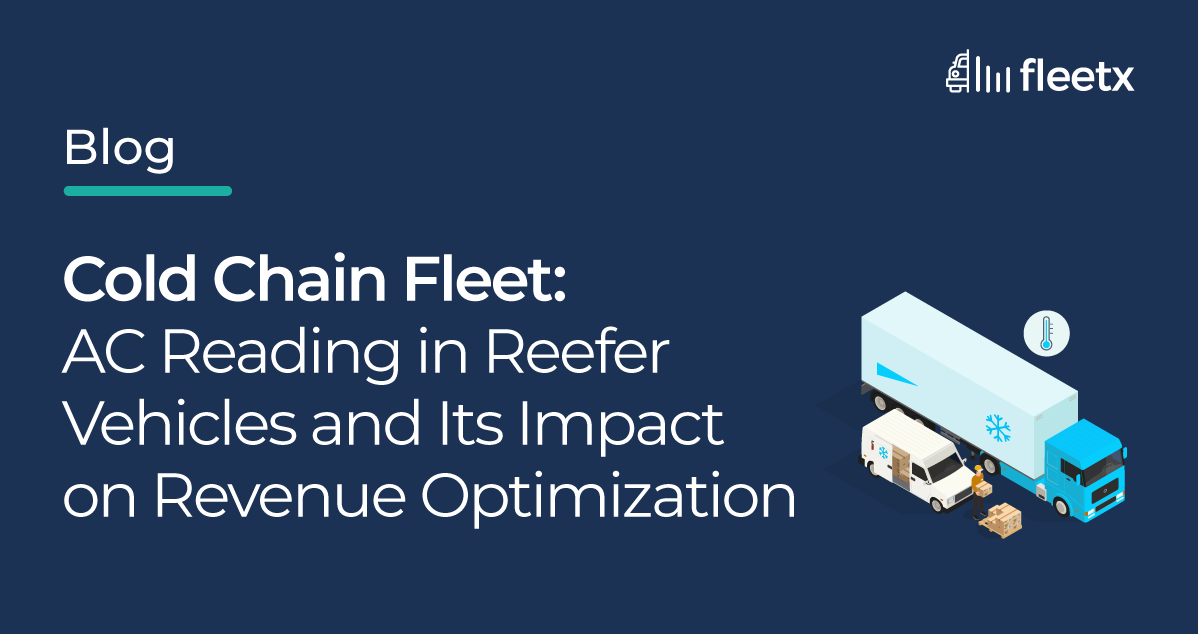In recent years, the adoption of electric vehicles (EVs) in the logistics chain of India has gained significant momentum. EVs have emerged as a promising solution to challenges posed by traditional forms of transportation; with zero tailpipe emissions and smaller carbon footprints, electric vehicles play a crucial role in promoting sustainable fleet management. However, to maximize their effectiveness, it is essential to track and manage electric vehicle fleets efficiently. In this article, we will explore why electric vehicle tracking is vital for sustainable fleet management and how it can lead to significant benefits for both businesses and the environment.
What is Sustainable Fleet Management?
It involves operating and maintaining a fleet of vehicles in a way that minimizes environmental impact and promotes long-term sustainability. It includes adopting alternative fuel vehicles, optimizing routes and schedules for fuel efficiency, promoting eco-friendly driving behaviors, monitoring vehicle performance through telematics, integrating renewable energy sources, analyzing data for continuous improvement, and fostering collaboration among all involved stakeholders. By implementing sustainable fleet management practices, not only can businesses reduce emissions and contribute to a greener future, but also lower costs, improve efficiency, and optimise resources.
How does EV Tracking Promote Sustainable Fleet Management?
1. Optimized Routing and Scheduling:
Electric vehicle tracking systems provide real-time data on vehicle location, battery levels, and charging station availability. By utilizing this information, fleet managers can optimize routing and scheduling, ensuring that electric vehicles operate efficiently. By identifying the most energy-efficient routes and scheduling charging stops strategically, businesses can minimize downtime and enhance overall productivity. Additionally, advanced tracking systems can incorporate traffic and weather updates, further optimizing routes for energy conservation and time management.
2. Reduced Emissions:
Electric vehicles are inherently more environmentally friendly than their traditional counterparts. However, effective tracking systems enable businesses to further reduce emissions by promoting efficient driving practices and optimizing routes to minimize unnecessary mileage. According to a report by the International Council on Clean Transportation, electric vehicles equipped with telematics systems reduced CO2 emissions by an average of 10-20%.
3. Enhanced Battery Performance and Maintenance Planning:
Electric vehicle tracking systems provide critical insights into battery health, usage patterns, and charging behaviors. This information enables fleet managers to effectively monitor battery performance and proactively plan maintenance schedules, reducing the risk of unexpected breakdowns and optimizing the lifespan of batteries. By implementing intelligent charging strategies, such as load balancing and smart charging during off-peak hours, businesses can extend battery life, minimize operating costs, and reduce the need for frequent battery replacements.
4. Improved utilization of charging infrastructure:
Range anxiety, the fear of running out of charge, is one of the significant concerns surrounding EV adoption. Electric vehicle tracking systems alleviate this concern by providing accurate and up-to-date information on battery levels and charging station availability. Fleet managers can monitor the state of charge of each vehicle, proactively plan charging stops, and guide drivers to nearby charging stations when necessary.
By ensuring that vehicles are charged optimally and avoiding unnecessary downtime, businesses can enhance the efficiency of their electric fleets and reduce the need for additional charging infrastructure.
5. Improved Safety and Security:
Electric vehicle tracking systems enhance fleet safety and security by providing real-time monitoring and alert mechanisms. Fleet managers can track vehicles' locations, monitor driver behavior, and receive instant notifications in case of accidents or unauthorized vehicle usage. With this information, businesses can take immediate action, ensuring the safety of their drivers, vehicles, and cargo. Additionally, the ability to recover stolen electric vehicles quickly adds an extra layer of security to fleet operations.
6. Data-driven Decision Making:
Electric vehicle tracking systems generate vast amounts of data related to vehicle performance, energy consumption, and driver behavior. These systems help businesses identify opportunities for fine-tuning through data analysis. By monitoring energy consumption, optimizing routes, and promoting efficient driving practices, companies can strategically reduce operational costs associated with fuel, maintenance, and vehicle downtime. These cost savings contribute to the economic viability of electric fleets, making them more attractive options for sustainable fleet management.
The Way Forward
As the logistics industry in India embraces the transition to electric vehicles, tracking and managing these fleets efficiently becomes crucial for sustainable fleet management. Electric vehicle tracking systems empower fleet managers to optimize routing, enhance battery performance, control and prevent range anxiety, improve safety, and make data-driven decisions. By harnessing the benefits of electric vehicle tracking, businesses can reduce costs, improve productivity, and contribute to a greener future.
Embracing smart solutions for fleet management, such as electric vehicle tracking systems, will not only enhance operational efficiency but also enable businesses to play an active role in combating environmental pollution and promoting sustainability in the transportation sector.






